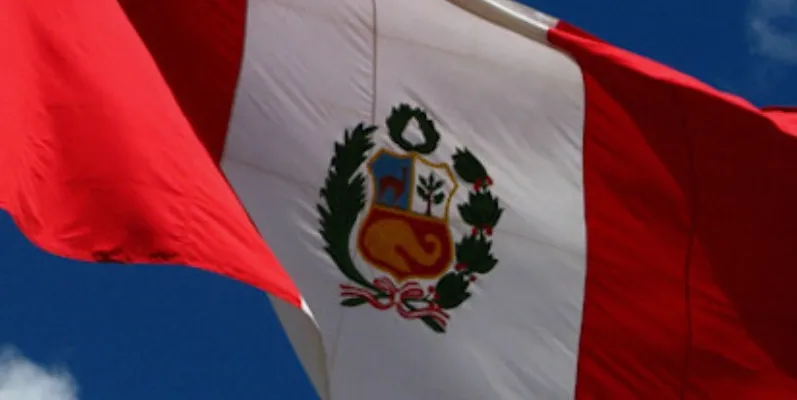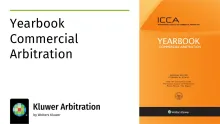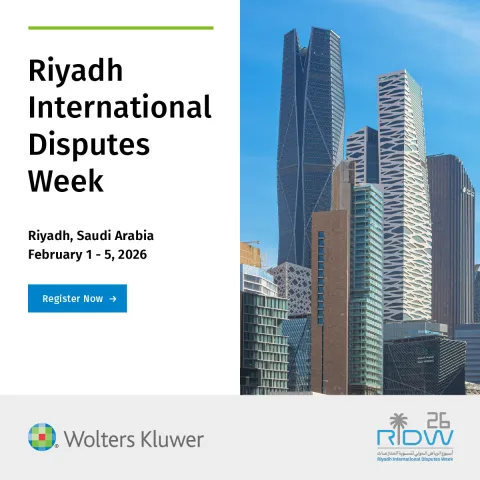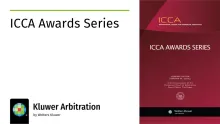Recently Issued Regulation for Mandatory Registration of Arbitrators and Arbitration Centers in Peru: Prop Gun or Deadly Weapon?
November 7, 2025
In September 2024, Peru enacted Legislative Decree No. 1660, which added the 15th Complementary Provision to the Peruvian Arbitration Law. This provision made registration of both arbitrators and arbitration centers "mandatory" in the National Registry of Arbitrators and Arbitration Centers ("RENACE"). But the Decree left the specifics of the registration requirements to be determined by subsequent regulation. On August 21, 2025, Supreme Decree No. 016-2025-JUS, issued the RENACE Regulations ("Regulations"). Although the Regulations reiterate that RENACE registration is mandatory, like the Decree, they impose no consequences for non-registration. Is this anything more than a prop gun —a mandate with no practical effect on arbitral proceedings in Peru? Or is it a deadly weapon that may disturb arbitral proceedings?
If It Ain't Broke, Don't Fix It
Since the 1990s, with Law No. 26850 (Peru's former State Contracting and Procurement Law), all disputes involving the State are mandatorily resolved through arbitration. In 1995, Law No. 26572 introduced a new arbitration statute, updating the system previously regulated only by the Civil Code. The goal was to make arbitration independent from court practices and to promote party autonomy, allowing parties to choose both their procedural rules and the arbitrators of their choice. Since then, Peru's arbitration system has improved exponentially. In 2008, the current Peruvian Arbitration Law was enacted by Legislative Decree No. 1071, based on the 2006 UNCITRAL Model Law, further modernizing the system. The Peruvian Arbitration Law is widely praised as one of the most modern in the world.
A key advantage of the Peruvian Arbitration Law is that, unlike other Latin American jurisdictions, it does not restrict the appointment of foreign arbitrators to decide domestic disputes. Foreign arbitrators can even be appointed to resolve domestic disputes involving the State—and this system has worked well for both private and State parties. In fact, recently, the Ministry of Transportation reported that the Ministry prevails in 72% of its arbitration cases, including cases initiated by foreign companies and heard by arbitral tribunals with foreign arbitrators. Other state-owned entities, such as PetroPerú, have also won domestic arbitrations administered by foreign arbitration centers and presided over by foreign arbitrators.
Overall, experience shows that when used correctly the arbitration system and the Peruvian Arbitration Law have been favorable even for State parties in Peru. The use of foreign arbitration centers and foreign arbitrators has been pivotal for this success and for the improvement of the arbitration system. As in any market, the availability of more products (i.e., arbitrators) makes the market (i.e., the arbitration system) better. The system works; it wasn't broken and didn't need fixing.
Since 2020, Peru Created RENACE—Now It’s Mandatory
Despite these successes, in 2020, the Peruvian government enacted Emergency Decree No. 020-2020. As previously discussed in Kluwer Arbitration Blog, under the guise of "transparency," this Decree amended the Peruvian Arbitration Law in an unnecessary and unsuccessful way, introducing changes that were misplaced and should have been addressed in separate legislation. The Decree's First Complementary and Final Provision created RENACE, requiring all arbitrators wishing to participate in State cases to register. This increased transaction costs for both domestic and foreign arbitrators, reducing their incentives to participate in these cases. Consequently, only some arbitrators registered, shrinking the pool of available arbitrators. At that time, however, registration was mandatory only for State-related disputes; private disputes were unaffected. That is no longer the case.
In September 2024, the government modified the Peruvian Arbitration Law. Legislative Decree No. 1660 extended the obligation to register in RENACE to arbitration centers and arbitrators involved in all arbitrations seated in Peru, including purely private cases. The Decree incorporated the 15th Complementary Provision, stating that registration "does not affect the arbitration function" but "is mandatory." According to the Decree’s Explanatory Memorandum, mandatory registration supposedly aims to ensure that centers and arbitrators meet certain requirements, increasing confidence and credibility in the system. However, the Memorandum repeats the need for regulation without providing a clear rationale. As previously discussed in Kluwer Arbitration Blog, the Decree was strongly criticized by the Peruvian arbitration community for promoting the proliferation of substandard arbitration centers, which can be used for illicit activities. The requirements for registration are so minimal that anyone can create an arbitration center, undermining the whole system.
The market awaited the RENACE Regulations to clarify registration requirements. On August 21, 2025, the Regulations were issued, but they failed to clarify or improve the situation. For example, Article 9 requires an arbitration center to provide both their incorporation minutes as a legal entity and the center's roster of arbitrators. However, major centers like the Arbitration Center of the Lima Chamber of Commerce are not registered as a separate legal entity (as it's part of the Lima Chamber of Commerce), and the ICC International Court of Arbitration does not maintain a roster of arbitrators.
Prop Gun or Deadly Weapon?
The Regulations do not offer real solutions to the problems they were meant to address. The proliferation of arbitration centers created for illicit purposes is not curbed by formal requirements, but by using constitutional actions and criminal prosecution against those who misuse the system. Instead, the Regulation's vague drafting invites abusive interpretations that may disturb arbitration proceedings.
The main issue is: What are the legal consequences of conducting an arbitration proceeding with unregistered arbitrators or centers? According to Bullard and others, the answer is clear: none of that should affect the arbitral process. We agree. The new Regulations may in the end be a prop gun—a weapon with no bullets. But the poor legislative technique of both the Legislative Decree and the RENACE Regulations, as well as the gaps they leave, may also arm many litigants with ammunition to hinder the proper conduct of arbitrations in Peru.
Both the Legislative Decree (Art. 3) and the Regulations (Whereas Section) recognize that registration with RENACE does not condition or limit the exercise of arbitral functions. Therefore, it should not be possible to challenge arbitral proceedings, tribunal constitution, or awards simply because an arbitrator or center is unregistered. While both norms state that registration is “mandatory,” they provide no consequence for failing to register. Any consequence should be administrative, not affecting the conduct of the arbitration.
What May Happen in Practice
Unfortunately, the ideal may not match reality. In the authors' perspective, the Regulations may actually end up creating problems. Below are potential issues that may arise.
a) Possible Impacts During and After Proceedings
Once the Regulations take effect (October 20, 2025), challenges may be raised against arbitrators not registered with RENACE, with parties arguing that such arbitrators lack legally required qualifications. Article 28.3 of the Peruvian Arbitration Law allows challenges if arbitrators "do not possess the qualifications … required by law." Since registration is now mandatory under the Peruvian Arbitration Law, parties may argue that unregistered arbitrators are breaking the law and thus are unqualified. This strategy may be used to remove arbitrators perceived as unfavorable.
Article 63.1(c) of the Peruvian Arbitration Law states that an arbitral award can be set aside if the tribunal's constitution or the arbitral proceedings "have not complied with the provisions of this Law." Again, since registration is now mandatory under the Peruvian Arbitration Law, annulment actions may be brought against arbitral awards involving unregistered arbitrators or centers.
This may also particularly affect the State. A recent PROINVERSIÓN (Peru’s private-investment promotion agency) report (p. 58) notes increased use of ICC arbitration in State contracts. If the ICC does not register with RENACE, many current and future ICC cases may be exposed to these problems.
b) Possible Impact on the Pool of Arbitrators
The RENACE Regulations may discourage many arbitrators—especially foreign ones—from accepting appointments related to disputes seated in Peru. Foreign arbitrators may not wish to deal with the Peruvian bureaucracy to obtain registration. The Regulations require disclosure of a “list of awards issued … within the last five years” (Regulations, Art. 13), but the lack of clarity about what qualifies as such a list could prompt authorities to demand details that breach confidentiality, such as the parties’ names, deterring foreign arbitrators from registering.
Conclusion
Peruvian authors have called for RENACE in these terms to be declared unconstitutional. Recently, the Peruvian Congress impeached the President, and the new President may seek to deactivate RENACE as conceived by the previous government. However, while the system remains unchanged, the problems described above are likely to disrupt ongoing and new arbitral proceedings in Peru. Hopefully, this will not happen, and Peru will soon return to being a world model in international arbitration.
You may also like










